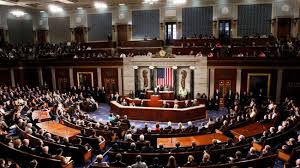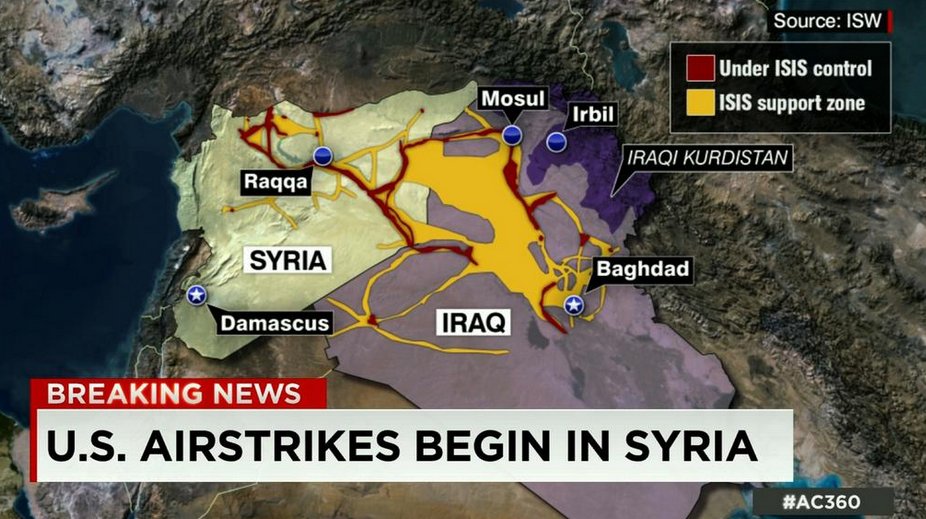Top 4 reasons to worry about President Obama Policy against ISIL
Source: Malek el Khazen

1. US to arm inexperience Opposition to fight ISIL and Regime:
The US have trained and financed Iraqi army for almost a decade. Iraqi army was unable to fight against ISIL; many surrendered or deserted their posts and left all of the US arms to ISIL.
Now sending arms to the Syrian opposition sounds a great idea, but unfortunately this opposition has not been trained, how can we expect this opposition to fight ISIL and the Assad regime?
2. President Obama fail to mention Al Qaeda front in Syria and Iraq known as Al Nusra front
We are still at war against al Qaeda. I do not understand how we can ignore them while eliminating ISIL. This campaign should target all fundamentalists.
3. Somalia and Yemen very bad outcome
Somalia and Yemen are countries in complete chaos in the verse of having their regime collapse. It is a disaster to try and follow the same strategy in Iraq and Syria.
4. Syrian opposition is divided into many groups and some groups do not want to fight ISIL
Many of the Syrian opposition groups oppose fighting ISIL or Nusra before completely eliminating the Assad Regime. How can the US count on an opposition that does not want to fight?
US LAUNCHES AIRSTRIKES IN SYRIA

Source Business Insider
The US and its allies have begun striking Islamic State targets in Syria, the Pentagon said Monday night.
The US and its partners are using a mix of fighters, bombs, and Tomahawk missiles, Pentagon spokesman Rear Adm. John Kirby said.
"I can confirm that U.S. military and partner nation forces are undertaking military action against ISIL terrorists in Syria using a mix of fighter, bomber and Tomahawk Land Attack Missiles," Kirby said in a statement.
Most of the targets Monday night were hard ones, such as buildings, a senior US official told CNN. CNN’s Jim Sciutto reported that Saudi Arabia, the United Arab Emirates, and Jordan were involved in Monday night’s strikes. According to ABC, the strikes targeted up to 20 locations in Syria, most of which were in or around Raqqa, the militants’ de facto capital.
Kirby said he was unable to provide additional details because the operations were ongoing.
"The decision to conduct theses strikes was made earlier today by the U.S. Central Command commander under authorization granted him by the commander in chief. We will provide more details later as operationally appropriate," Kirby said.
President Barack Obama initially outlined his plan to "degrade and ultimately destroy" the extremist group calling itself the Islamic State (also known as ISIS or ISIL) in a primetime speech on Sept. 10. Part of that strategy, he said, would involve airstrikes in Syria, along with support for partner forces on the ground in the form of moderate Syrian rebels.
"We are going to take airstrikes in Syria at a time and place of our choosing," a senior administration official said at the time. "This is something the president has decided to do. We will take action on the Syrian side of the border to degrade ISIL. But we’re not going to telegraph our punches."
The president’s speech came after ISIS released a gruesome video showing the beheading of freelance US journalist James Foley in August. Since then, ISIS has threatened other American and European targets.
The campaign in Syria marks a major escalation of the confrontation between ISIS and the US and its allies. Until now, US airstrikes against the group had been confined to Iraq, where it has now struck 190 targets since Aug. 8.
Obama has sent hundreds of special-operations advisers to Iraq to assist and train Iraqi Security Forces and the Kurdish peshmerga forces. Last week, Congress approved legislation granting Obama the authority to train and arm vetted factions of the Syrian opposition.
Obama spoke with House Speaker John Boehner by phone on Monday evening and informed him of the airstrikes, Boehner’s spokesman, Michael Steel, said.
Last update at 10:21 p.m. ET.



